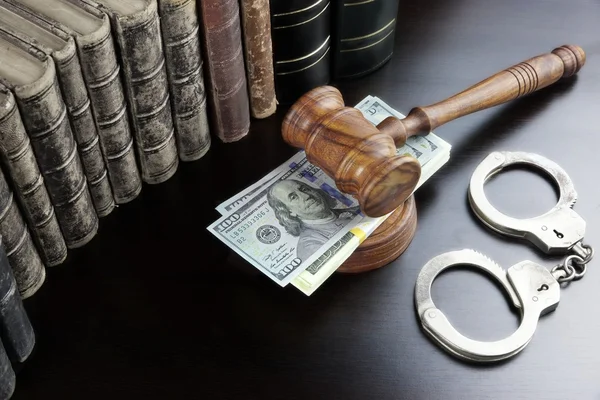Bail bonds allow people to post a small fee for an accused person in order to get them free from jail. This usually involves putting up collateral like a home, car, jewelry or other assets that are valued at monetary value.
Co-signing for bail is a big financial commitment and can impact your credit score. It’s important to weigh all options and make sure that you can handle this responsibility before committing.
Check out ‘6 Tips for Paying Bail Bonds Responsibly’ on CEOColumn for valuable advice on managing bail payments responsibly. Visit the link to see more!
1. Consider Your Options
It is important to understand the different options available when paying bail bonds. These include cash bonds, surety bonds, property bonds, and citation release. Each has its own set of requirements and implications.
Some courts may allow defendants to be released on their own recognizance without having to pay a bond or use a bail bonds agent. This option is typically reserved for those who are considered low risk of flight and who have strong ties to their community.
If you or someone you know needs to post bail, it is important to weigh the decision with the same care as a major financial commitment. Make sure that you are in a position to vouch for the accused and that you can comply with all contractual obligations.
2. Collateral
A key component of the payment process when seeking bail bonds is collateral. This is something of a guarantee that can be put up by friends and family to ensure the defendant appears at all court dates.
This can include physical property, such as real estate, vehicles, or even stock, art, and jewelry. The goal is to offer a readily saleable asset that is worth the amount of the bond.
This commitment shouldn’t be taken lightly. Those who choose to offer collateral should understand the risks and legal ramifications involved in this decision. Seeking professional advice can be invaluable in this regard. The value of collateral should be sufficient to cover the total amount of the bond plus any applicable service fee.
3. Payment Plans
It’s not always possible to pay the full amount of an arrest bond upfront. That’s why many bail bond companies offer financing plans that allow customers to make payments toward their bail bonds each month.
Payment plan options can be especially helpful if the accused person is going to be facing serious charges that will likely lead to a long jail sentence. Bail bondsmen typically check employment, credit history, and arrest histories before approving a client for a payment plan.
A payment plan will also most likely include interest rates, if applicable by law. Missed payments could lead to the forfeiture of collateral that is used to secure the bond.
4. Government Pay Services
When someone is arrested and charged with a crime, they are often given the option to post bail to avoid being held in jail until their trial. This bond is essentially collateral that guarantees the defendant will show up for their court dates. People can pay the bond directly or through a bail bondsman.
However, it’s important to remember that when you pay a bond you are taking on some responsibility. For example, if the defendant does not show up for their court appearances, you are responsible for paying the cost of hiring a fugitive recovery agent. This can be a significant expense.
5. Credit Cards
Bail bonds are an important financial commitment and must be treated as such. For some people, this may mean taking out a personal loan to pay for bail bonds. These loans come with interest, fees and additional financial responsibilities.
Credit cards can be a convenient bail payment option. They also allow for faster payments than cash. Additionally, if the person has a general rewards card, they can potentially earn points or miles for their bail bond purchase.
However, many merchant accounts are reluctant to work with bail bond businesses due to their high chargeback ratios. This is a problem that has cost merchants billions of dollars.
6. Other Options
Bail allows people to get out of jail before trial. It is a form of pretrial release that requires an amount of money or a guaranty from a bail bond company to ensure the accused person will show up for all scheduled court hearings related to their case.
Many of these bonds are secured with collateral such as a home, car, or other property. If the accused fails to attend their court hearings, the bond agent will sell the property and collect their fee.
However, there are alternatives to using bail bonds that can save you time and money. For example, some jurisdictions offer pretrial release programs that can let your loved one out of jail without having to pay any money for their bail.
